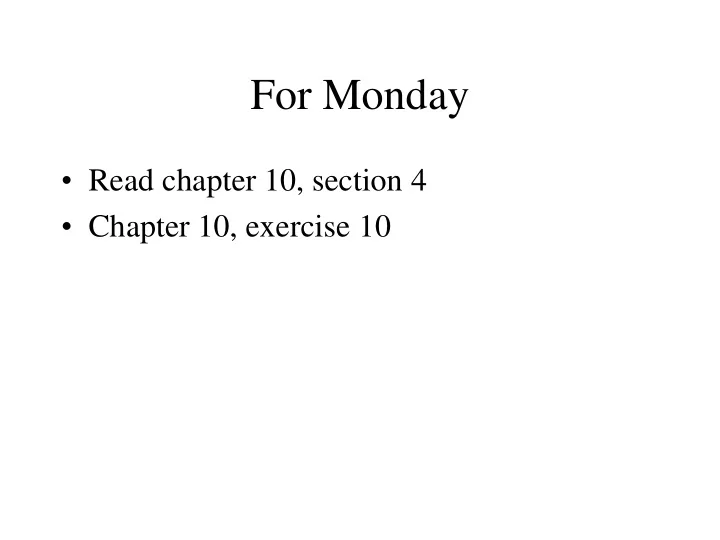

For Monday • Read chapter 10, section 4 • Chapter 10, exercise 10
Research Paper • Any questions?
Program 5
On-Line Strategies • Next Fit • First Fit • Best Fit
Off-Line Strategies • First Fit Decreasing • Best Fit Decreasing
Divide and Conquer • Basic Concept – Break a problem into pieces – Solve the problem for each piece – Combine the solutions to create the solution for the entire problem • Recursion – The divide and conquer concept is recursive – Implementations of divide and conquer algorithms may or may not be recursive
Finding a Counterfeit Coin
Familiar Divide and Conquer Algorithms • What algorithms have we looked at that fit this type?
Familiar Divide and Conquer Algorithms • Quicksort • Mergesort • Binary Search • Permutations • Towers of Hanoi Solution
Divide and Conquer Examples • Finding max-min • Closest two points • Selection
Dynamic Programming • Related to divide and conquer • We want to build solutions from partial solutions • However, our partial solutions may overlap • Rather than re-computing the partial solutions, we want to compute them once • Bottom-up
Fibonacci Numbers • Recursive solution • Better to use iterative solution and record partial solutions
Making Change • With standard denominations, we can use a greedy algorithm to make change in the fewest number of coins • What if denominations are 1, 4, and 6 • Greedy algorithm doesn’t work • But we can use partial solutions
Basic Dynamic Programming • Find and record optimal solutions to the smallest subproblems • From those solutions, compute optimal solutions to the next-smallest subproblems • Continue until solution is computed to the complete problem
Principal of Optimality • Optimal solution must be based on optimal partial solutions
All Shortest Paths • Floyd’s algorithm is a dynamic programming algorithm • We keep track of best path known thus far.
Matrix Multiplication
Optimal Binary Tree
Recommend
More recommend